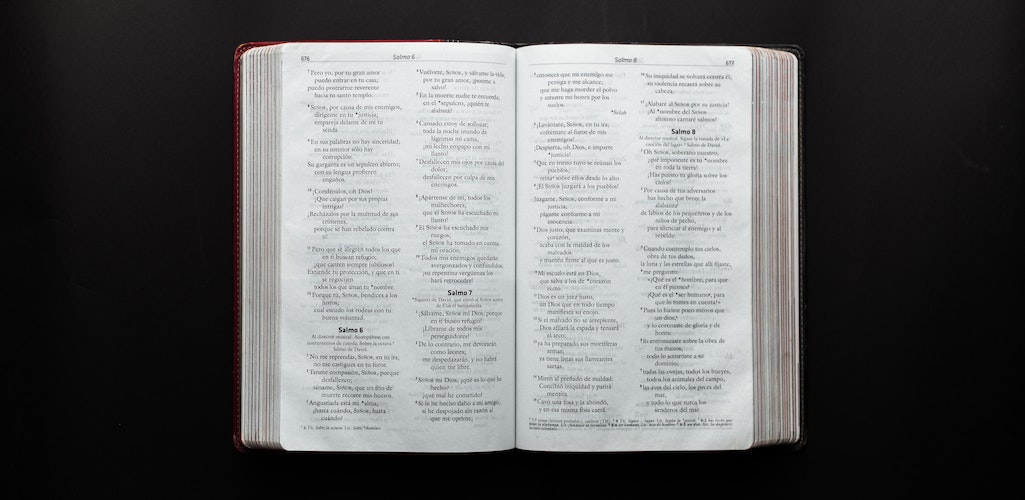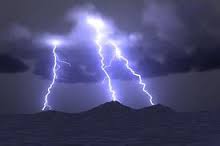A Study in the Significance of Names in the Bible

What a wealth of spiritual instruction lies wrapped up in the meanings of many of the names of persons and places that we find in our Bibles!
A servant of Christ in has devoted some of the best years of his life to research in this fruitful field. The result of his labours is A Dictionary of Scripture Proper Names, by J.B. Jackson. Not that it claims perfection. Other sources of information are, of course, open to the reader; and one is generally safe in accepting the meaning of a Hebrew name agreed upon by the leading Biblical scholars.
As an illustration of the value of such study, let us have a little Bible reading on Genesis 2:10-14-just these five verses.
And a river went out of EDEN to water the garden; and from thence it was parted, and became into four heads. The name of the first is PISON: that is it which compasseth the whole land of HAVILAH, where there is gold; and the gold of that land is good: there is bdellium and the onyx stone. And the name of the second river is GIHON: the same is it that compasseth the whole land of ETHIOPIA. And the name of the third river is HIDDEKEL: that is it which goeth toward the east of ASSYRIA. And the fourth river is EUPHRATES.
The river may well stand as an emblem of God’s grace. It is now "flowing o’er this barren place, where Jesus died." But it began its flow before the barrenness that resulted from sin set in. Before Adam fell, before sin entered into the world, God had this wonderful river flowing out. Grace was no afterthought with Him.
Sin was the occasion of its full display, but ere sin had corrupted God’s fair creation, God had formed gracious designs for man.
EDEN means "delight." It was because of God’s delight in man (viewing him, as He did, in the light of His wonderful purpose) that grace flowed out on his behalf.
The river was parted into FOUR heads. Numbers, as well as names, have a significance in Scripture, and four is the number of universality; there are the four quarters of the earth, the four winds of heaven, etc. So we learn that God’s intention from the beginning was that His grace should flow out to men everywhere, universally, and not run in any narrow, national, Jewish stream. The grace that brings salvation was to appear to all men and be preached in all creation under heaven (Titus 2:11; Colossians 1:23). It was to roll out north, south, east, and west, wherever men were found.
PISON means "great effusion" and serves to remind us of the abounding of the grace of God. Who can read without a thrill of soul the wonderful words that tell us that "where sin abounded, grace did much more abound"? Who among us cannot testify to the "abundance of grace" that he has received (Romans 5:17)? Truly God’s river is a Pison!
The land that was compassed, and compassed in its entirety, by the river Pison, was the land of Havilah. HAVILAH means "suffering," and this exists in the world as the consequence of sin. Are not our own hearts stirred with deep compassion as we look out upon the great world of suffering, this Havilah with which we are surrounded? But are not our hearts stirred again as we think of the river that compasses it, the grace of God in its infinite abundance, that flows round it in every part? What can truly meet suffering but grace? What can bring to sinful men a remedy for all the woes that they have brought upon themselves by their folly, but the abounding grace of God?
In the land of Havilah there was gold, gold declared to be good. And in the land of suffering, grace finds, as the result of its own work, that which is precious indeed, gold that shall shine in the house of the Lord for ever. Thank God for suffering that results in this! Thank God for the grace that compasses this land of sorrow and anguish and finds precious gold here!
Two other things were found in the land of Havilah: bdellium and the onyx stone. As to the significance of the BDELLIUM there is some difficulty. Mr. Jackson in his Dictionary gives the meaning of the word as "in turbidity." This may set forth another consequence of sin: the disturbance of the relationship that existed between God and man. Man’s communion with his Creator is clouded over, he acquires a guilty conscience. But side by side with this there is something which is again the fruit of grace. The meaning of ONYX is given to us as "setting them equal; justifying them." Here we get a forcible reminder indeed of what the grace of God accomplishes for guilty man, setting him again in restored relationship and communion with God, on the basis of redemption, and justifying him from all guilt. Oh, let us thank God again and again for the overflowing abundance of His grace, the Pison that compasses this poor land of Havilah.
We can but touch lightly on these profound themes, for our Bible study is intended to be suggestive rather than exhaustive. We pass on to the Second head of the river.
GIHON means "valley of grace." Rivers always flow in valleys, bringing freshness and life, and producing verdure and beauty, in the lands through which they pass. Lofty eminences are left high and dry. Towering summits are often bare and barren, while the lowlands beneath are full of flowers and foliage, made fertile by the river that winds its way through them. And it is to the lowly that the grace of God comes. Not those who dwell upon the lofty peaks of satisfied self-sufficiency, but those who find their place in the valley of contrition and true repentance, does grace bless. He who brought the knowledge of God’s grace into the world, came not to call the righteous, but sinners. And He came, not to set them climbing heights of self-culture, but to call them to descend into the valley where the grace of God could meet them-the valley of repentance.
ETHIOPIA, or CUSH, the land compassed by the river Gihon, means "darkness." It is a picture of this world and of what men would be were it not for the illuminating grace of God. That grace has compassed us about, and, shining in our hearts, has brought us out of darkness into God’s most marvellous light.
Thirdly comes HIDDEKEL. Most Bible dictionaries give the meaning "swift." This would set forth another lovely trait of Divine grace, the swiftness with which it hastens to bless and to save. God was in no haste when He created the heavens and the earth. He proceeded in a measured and orderly way. He certainly is in no haste to judge. He is slow to anger and has lingered all these centuries in long-suffering mercy over the world that is so deaf to His calls. But His grace is swift to bless. Grace sees the returning prodigal afar and runs to welcome him. Grace goes out quickly to bring the needy to the feast (Luke 14:21). Yes, the river of God’s grace is a swift-flowing Hiddekel!
This branch of the river flowed toward the east of ASSYRIA. The meaning of Assyria is given as "a step," and coupled with the east it would point to a step away from God. It was on the eastward side of the garden that Adam and Eve were driven from God’s presence, for here were set the Cherubim to prevent their return. Cain going out from Jehovah’s presence went a step further in the same direction, and "dwelt in the land of Nod, on the east of Eden." And again those fatal eastward steps were taken by the human family in Genesis 11:2 (see marginal and R.V. readings) and by Lot in Genesis 13:11. But though men have, as it were, become Assyrians, in taking step after step away from God, yet He in His grace has ever pursued them, and will do so as long as the day of grace endures.
"The fourth river is EUPHRATES," a name which signifies "making fruitful." And this is the result of the working of God’s grace. Under law there was no fruit for God. The striking parables in Luke 13:6-9 and 20:9-16 make this very plain. But when grace works, fruit begins to appear in the form of God-fearing lives, devotion to Christ, faithfulness in testimony, zeal in His service, and in many other lovely traits which the Spirit of God works to produce in the children of grace.
Have we not gleaned something from our Bible study, something that we should have missed, had we passed over the names as having no special significance?





